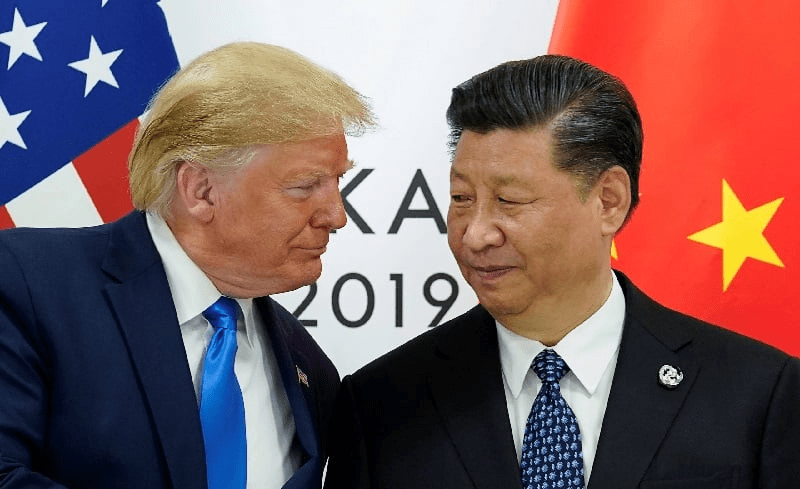On Friday, May 2, China announced that it is evaluating proposals from the U.S. regarding restarting trade negotiations. This marks a slight shift in Beijing's stance amid the backdrop of new tariffs from the Trump administration beginning to have a noticeable impact on the world's second-largest economy.
China signals readiness to negotiate with the U.S.

According to Outlook India, in a statement, the Chinese Ministry of Commerce declared: 'China is conducting an assessment after the U.S. has repeatedly expressed a desire to engage in dialogue with Beijing regarding tariff issues through relevant channels.'
This statement comes amid the U.S. imposing tariffs of up to 145% on many Chinese products (some products even facing tariffs up to 245%) in April, while Beijing retaliated by imposing new tariffs of 125% on imports from the U.S.
'The trade war was initiated unilaterally by the U.S. If the U.S. wants to negotiate, they need to show goodwill, prepare adequately, and take specific actions, including rectifying mistakes and removing unilateral tariff measures,' emphasized the spokesperson for the Chinese Ministry of Commerce.
Yuyuan Tantian, a social media channel affiliated with China Central Television (CCTV), recently published an article emphasizing: 'China does not necessarily have to negotiate with the U.S. before Washington takes practical action. But if the U.S. wants to exchange views, then at this time, negotiating does not harm China.'
Observers note that the tone in the article reflects a more flexible stance from Beijing. Andrew Polk, co-founder of the consulting firm Trivium China, believes the message appears to be 'preparing for both sides to be ready to sit at the negotiation table.'
Tensions escalate – but are there signs of 'cooling down'?
Previously, China had completely denied the possibility of negotiating tariffs with the U.S., while President Trump asserted that negotiations are still ongoing and stated that he had spoken with Chinese President Xi Jinping.
However, the Chinese Foreign Ministry dismissed the existence of any such communication between the two leaders.
While other countries have been granted a 90-day delay in imposing tariffs to continue negotiations, China is the only country subjected to tariffs up to 245% and is also the only country retaliating accordingly to U.S. tariff measures.
The White House stated that over 75 countries have approached Washington to discuss new trade agreements, leading to a suspension of high tariffs against them, except for China, which remains subject to the same tariff levels due to continued retaliation.
On April 16, China appointed a new senior trade negotiator after President Trump declared that 'the ball is in Beijing's court' and that China needs to actively resolve the current tariff deadlock.
Concerns within China
Although China maintains a tough stance, there are growing concerns domestically about the negative impact of U.S. tariff policies on the Chinese economy, which is already weakening due to declining exports, stagnant domestic consumption, and a collapsed real estate market.
The U.S. is currently China's third-largest export market, making the impact of tariff measures even more severe.

According to Morgan Stanley's chief economist for the Asia region, Chetan Ahya, trade flows between China and the U.S. have been 'severely disrupted' after retaliatory tariff hikes. The number of container ships carrying goods from China to the U.S. has dropped sharply in recent weeks, leading to a decline compared to the same period last year.
At an economic policy meeting last week, the Chinese government pledged to support businesses and workers most severely affected by the enormous tariffs from the U.S., while emphasizing the urgency of implementing more proactive fiscal policies and a 'moderately loose' monetary policy to boost the economy. Senior Chinese economic officials also committed to being ready to intervene more strongly to mitigate the impact of U.S. tariffs.
However, expert Zichun Huang from Capital Economics believes these measures may not fully offset the negative impacts. Capital Economics also estimates that the Chinese economy will only grow by 3.5% this year, lower than Beijing's ambitious growth target of 5%.